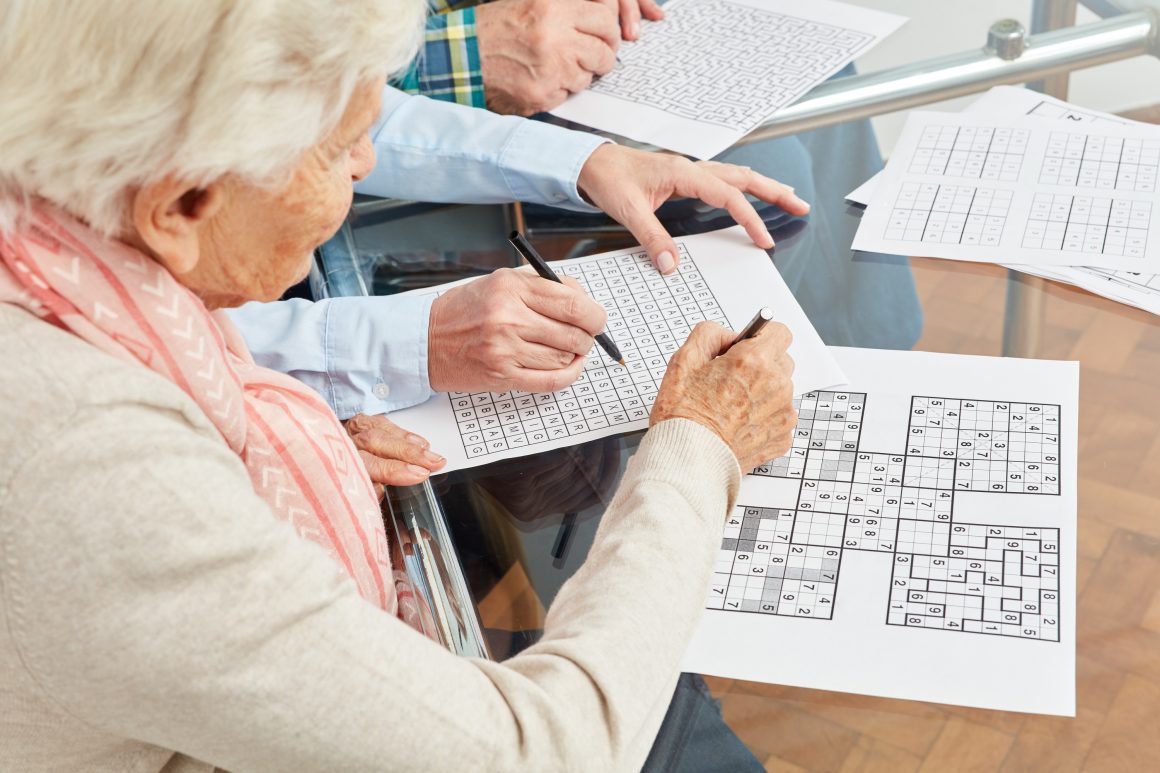No one is comfortable with the fact that our brains age and things that were easy for us to recall or tasks that were easy to do become more difficult. As a result, we tend to look for ways to keep our brains from aging and to do that, we don’t have to look much further than the Sudoku puzzle in the daily newspaper.
Or at least that is the assertion of a study published in the International Journal of Geriatric Psychiatry. Researchers examined data from more than 19,000 participants to see how they performed on word puzzles and number games and used a series of tests to assess memory function as well as attention and reasoning.
The results suggest that the brains of people who regularly do puzzles function similarly to people 10 years younger than them. On short-term memory tests, participants brain function was equivalent to someone eight years their junior. The biggest improvements were in the areas of speed and performance accuracy.
While the results show promise for maintaining brain health, they don’t necessarily equate to a diminished risk of dementia. That fact has the scientific community debating whether or not the research is accurate enough to base treatments for cognitive decline on.

Brain Training Games
In recent years, several studies have shown the potential of brain training games or challenges to keep the mind sharp. As a result, a number of apps and services aimed at providing cognitive training to older adults have surfaced.
Some high-profile examples include Lumosity or brain training app Brain HQ, a platform designed by a team of neuroscientists that uses an algorithm to adjust the difficulty level of activities that help users work on speed of thought, navigational skills, memory, attention, sociability and problem solving.
Sudoku is just one example of a type of brain training game and in some ways, the most accessible as it is not reliant on technology and is commonly known across a variety of cultures. One of the primary benefits of Sudoku is the fact that it forces the person to think two or three moves in advance, an activity that is good for the brain.

Does Sudoku Prevent Cognitive Decline?
Researchers around the world have met the studies with both optimism and skepticism. Some have noted the correlational nature of the research and point out that playing them doesn’t necessarily equate to improved cognition, but rather, it could simply be that people who have better cognitive ability tend to do them. For those suffering from cognitive decline or a neurodegenerative condition, the games are likely to be frustrating and cause them to quit.
Some have hypothesized that by doing these activities throughout our lives, human beings can set the bar from which cognitive decline occurs much higher, so to speak.
A study published in the British Medical Journal followed nearly 500 people over a 15 year span starting when they were age 64. They examined the participants verbal memory and information processing speed. Results showed that while things like crossword puzzles and Sudoku had the potential to boost mental ability, those problem-solving activities had no influence over cognitive decline as people age.
